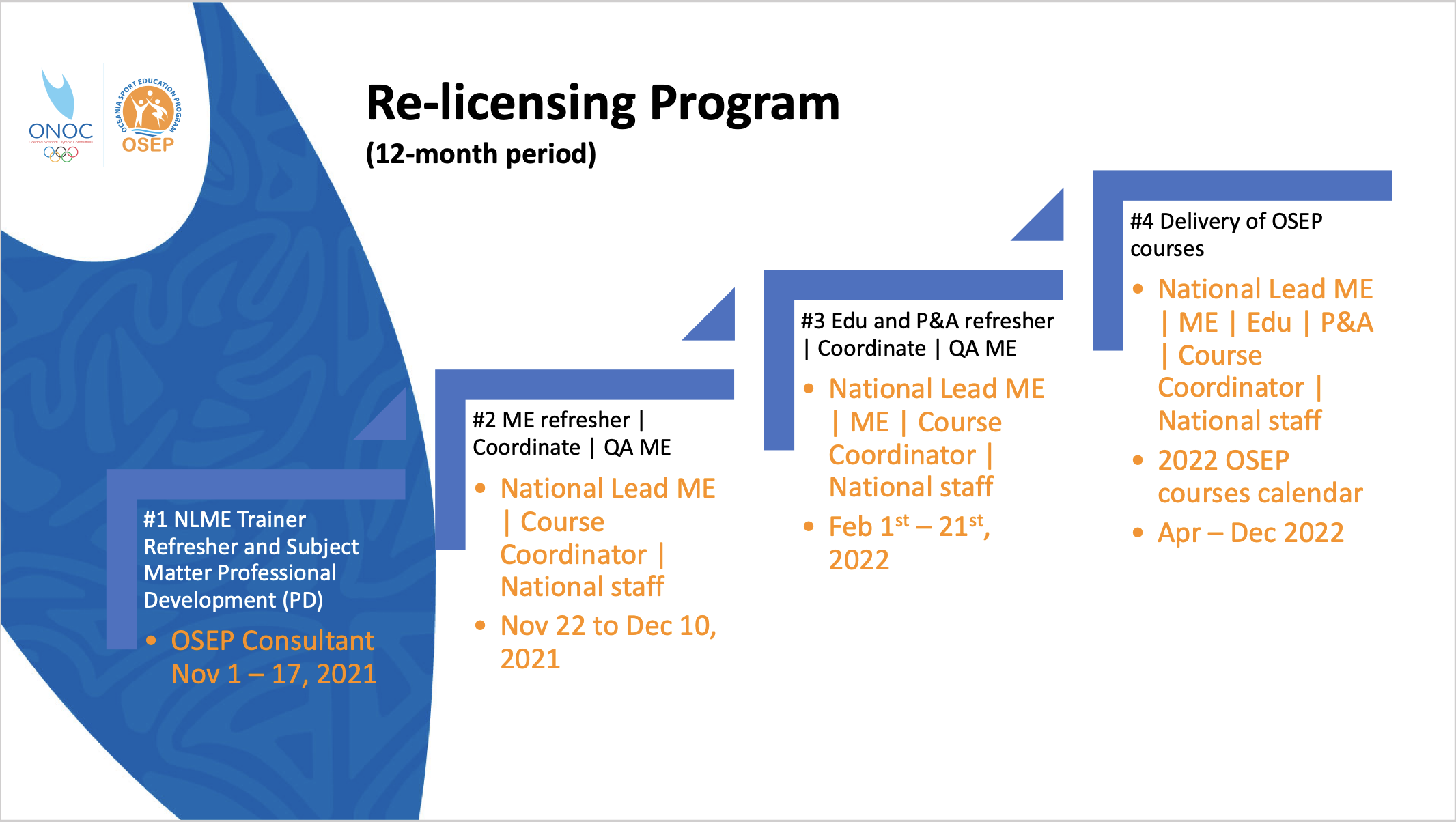Sport education is critical to growing a sport industry in the Pacific Islands because as it improves coaching, high performance, administration, management, and governance, it builds powerful and more resilient athletes.
The Oceania Sport Education Programme (OSEP) has been engaged in a relicensing programme for all its trainers since November 2021 to ensure the relaxing of the COVID-19 pandemic limitations lead fast into accredited OSEP trainers transiting swiftly to sport education with national federations and National Olympic Committees.
While not all Pacific Island countries went through pandemic restrictions, given variances in transmission with some countries remaining COVID-free with sufficient leeway for vaccination of eligible demographics, the relicensing programme offered refresher courses to all sub-regions and countries in the OSEP zoning.
According to Varanisese Karisitiana, OSEP Programme Quality Coordinator, “The relicensing involved professional development and assessment of skills and it began in online mode.”
“The relicensing is important because refresher courses begin with the training of trainers who then deliver the courses at national or in-country level; the first level refresher delivered was for members of ONOC, regional sport federations and other sport stakeholders.”
Karisitiana said; “The trainings were distributed among five groups each led by a National Lead Master Educator or NLMED.”
“Groups 1 and 2 were Fiji and Papua New Guinea respectively, both standing independently given the large number of OSEP trainers in both countries. Fiji was led by Tihrani Uluinakauvadra and coordinated by Seru Ramakita. Papua New Guinea as led by Lemeki Savua and coordinated by Alurigo Ravusiro.
“Group 3 was led by Joey Miranda III of Guam and coordinated by Kevin Harkey. The countries in this group include Federated States of Micronesia (FSM), Guam, Marshall Islands and Palau.”
Karisitiana added that; “Group 4 was led by Nynette Sass of Samoa and coordinated by Richelle Gempton. Countries in this grouping being American Samoa, Cook Islands, Kiribati, Nauru, Samoa, Solomon Islands, Tonga, Tuvalu, and Vanuatu.”

“Group 5 was led by Natanya Potoi of Samoa and coordinated by Siniva Marsters. The training being specific to the needs of the Oceania Regional Anti-Doping Oragnisation (ORADO) for its training of Doping Control Officers (DCOs) and Chaperones.”
Speaking about gender breakdown, Karisitiana said; “As a result of the relicensing programme, there are now 24 National Leads Master Educators (NLMEDs) trained. Currently, 58.6 percent of NLMED are women and 41.6 percent are men.”
“In an outstanding performance to bring gender equity up in terms of its trainers, ORADO had a 100 percent, or all women, trained at NLMED level.
“Papua New Guinea also achieved an 80 percent of women trained at NLMED level which augurs well not only for the country but for the region in sport.
“At Master Educator level, only Groups 1, 2 and 5 have completed trainings at national level. These are Fiji, Papua New Guinea, and the regional anti-doping programme, ORADO.”
THE RELICENSING PROGRAMME
The relicensing programme is being delivered between November 1, 2021 and November 30, 2022. All NLMED are assigned to one of the five groups. Each group has a Lead NLMED and Course Coordinator.
The Master Educator refresher course will be facilitated by the Lead and team of NLMED, coordinated by the national course coordinator and Quality assured by NLMEDs.
The Educator, P&A refresher course will be facilitated by the MED, coordinated by the national course coordinator and Quality assured by MED; MED will be quality assured by NLMED.
All trainers will be required to attend Professional Development Sessions as well.
Article adapted from the ONOC website.
